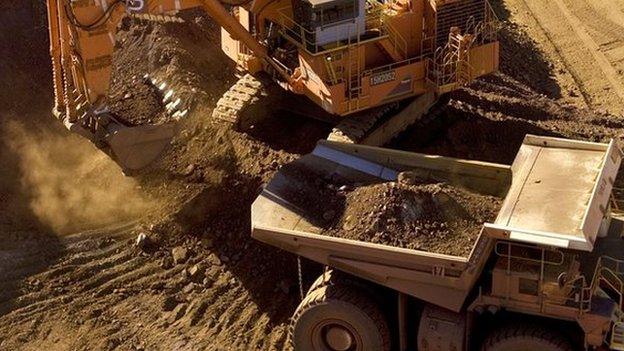Australia tax cuts plan for big businesses shelved
- Published
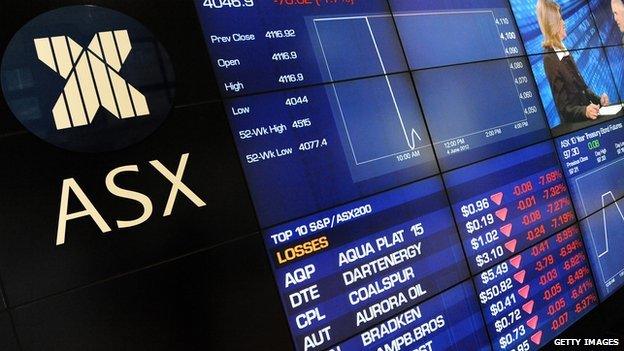
Australian big businesses had been hoping for a tax windfall
The Australian government has reneged on a promise to cut company tax for big businesses.
However, Prime Minister Tony Abbott said promised tax cuts for small firms would go ahead in the 12 May budget.
The government would also not increase taxes on superannuation (pension funds) during this term, he said at a business lunch in Sydney.
He said the goal was to cut taxes but there would be no new spending in the budget that was not offset by savings.
"On July 1, the tax arrangements previously flagged - a general company tax cut coupled with an offsetting levy to pay for a more generous parental leave scheme - won't go ahead," he said.
"I can confirm, though, that the budget will have measures to cut small businesses' tax bills in ways that will stimulate investment, boost productivity, generate new jobs and make existing jobs more secure."
The announcements come as the government faces a huge blow-out in budget finances because of a plunge in commodity prices.
Australian Treasurer Joe Hockey said on Sunday that a recent steep drop in the price of iron ore had wiped as much as A$25 billion (£13bn; $19bn) from government revenue over the next four years.
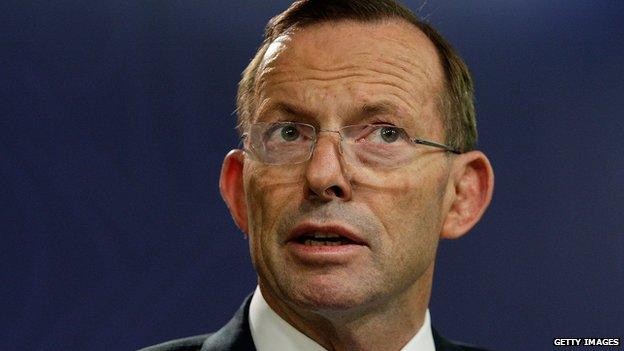
Prime Minister Tony Abbott said spending had to be matched by savings
The change in heart on tax cuts for big business is one of a number of promises broken by the government in the past year.
In February, Mr Abbott dropped one of his signature policies - a paid parental leave scheme - because it was deemed too expensive for the private sector to fund.
The government's initial policy said mothers would be provided with half a year's paid parental leave at their actual wage or at the national minimum wage, whichever was greater, but with a cap at A$150,000 ($116,500; £77,254).
Women would also be paid pension funds and the whole scheme was to be funded by a 1.5% levy on companies with taxable incomes in excess of A$5m ($3.8m; £2.6m).
But members of Mr Abbott's own party said it was too expensive and it received only a lukewarm response from women's groups because it did not address rising child care costs.
- Published15 April 2015
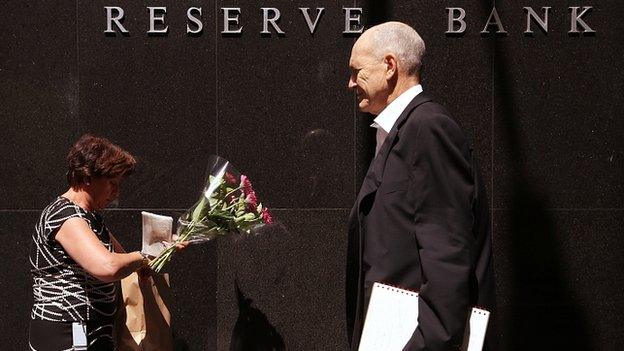
- Published8 February 2015
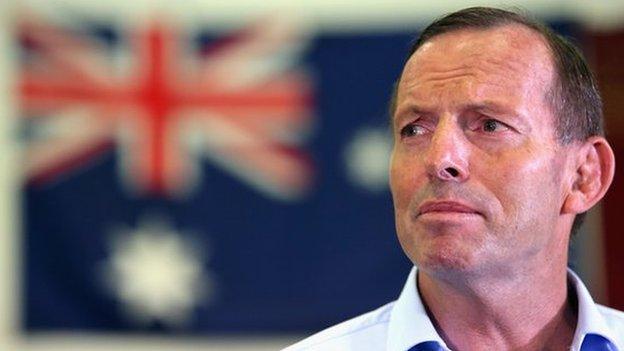
- Published6 February 2015
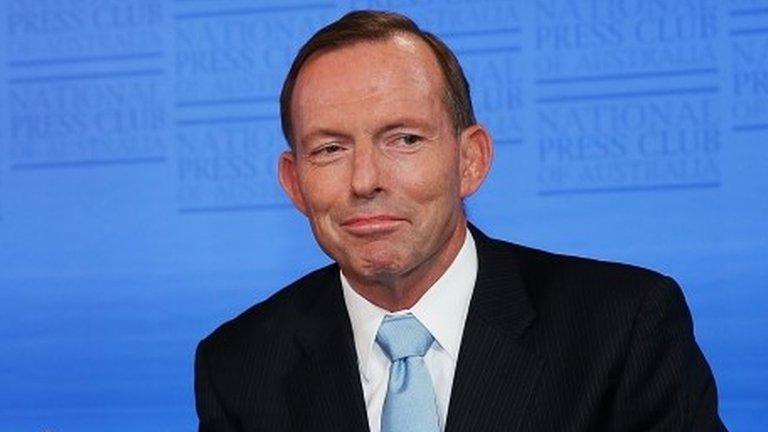
- Published14 April 2015
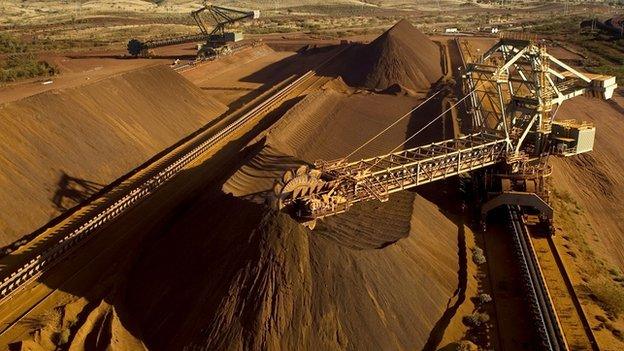
- Published13 April 2015
